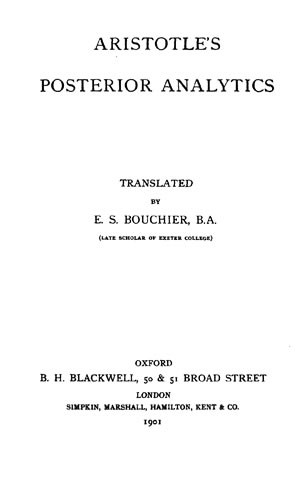
Posterior Analytics
- Aristotle (author)
- Edmund Spencer Bouchier (translator)
Aristotle sets out the conditions under which scientific arguments will provide true knowledge; where true conclusions are deduced from first principles and basic principles are used to explain more complex ones.